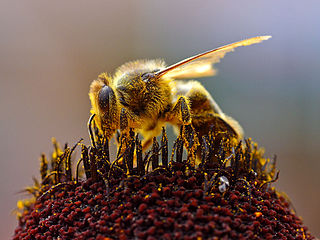The Dahlonega Nugget had an interesting story this week about the negative impacts of this warm winter has had on bee populations in northeast Georgia. According to the story, the warmer conditions cause the bees to be more active, but with few flowers blooming they use up more energy foraging for food than they can find, and so beekeepers have to make sure that they leave plenty of honey in the hives as food. The warm conditions also encourage the increase in Varroa mites, which are a parasite to honeybees and are thought to be a factor in catastrophic colony collapse. You can read more here.
